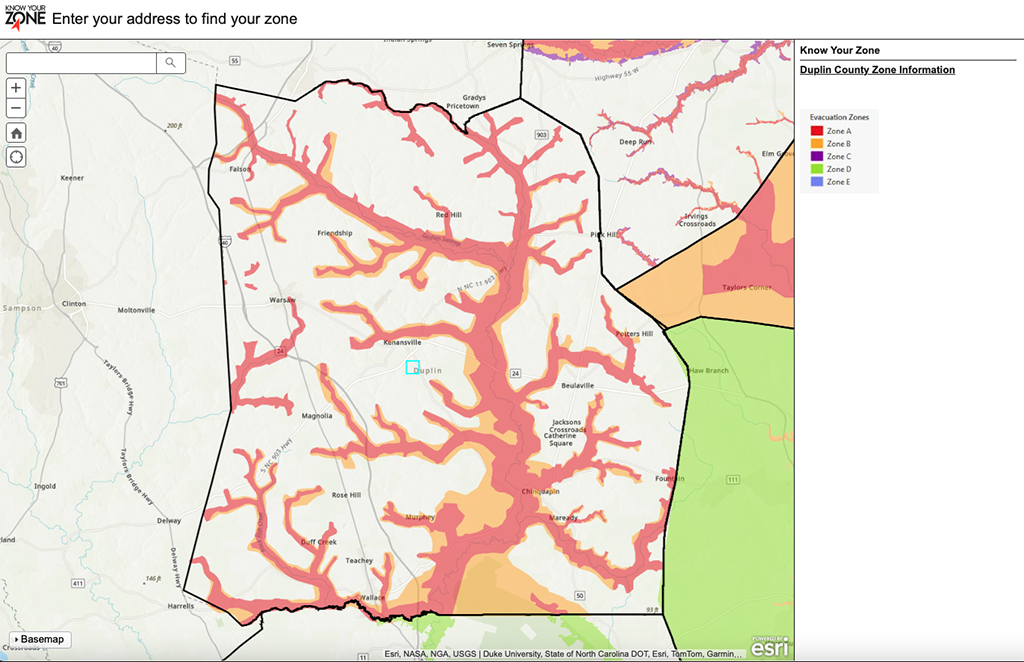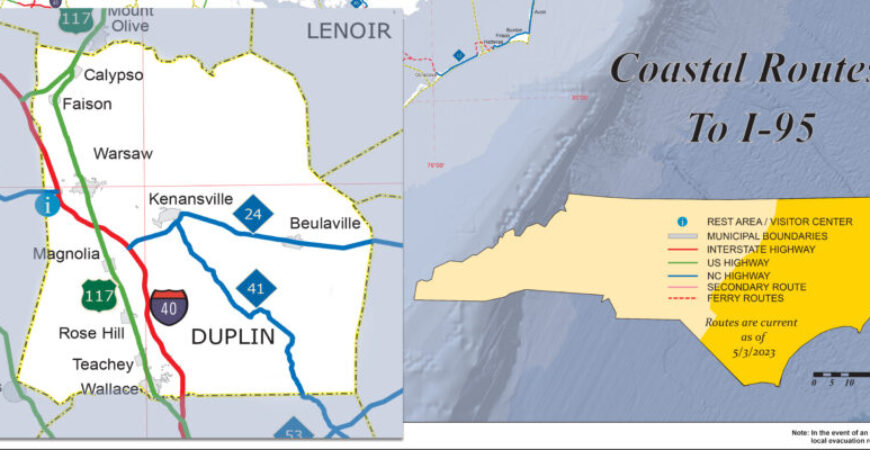Local groups and authorities come together in preparation for an active hurricane season

With hurricane season in full swing through Nov. 30, and an 85% chance of an above-normal hurricane activity predicted by NOAA National Weather Service, it is essential for everyone to be prepared.
According to NOAA, this year we could see a range of 17-25 named storms with winds of 39 mph or higher, with four to seven developing into major hurricanes.
To help Duplin County residents stay ahead of potential natural disasters and have a plan in place, the Disaster Recovery Group of Duplin County is hosting a Disaster Preparedness Expo on Saturday, June 8 from 10 a.m.-1 p.m. at Charity Mission Center in Rose Hill.
The event will feature informational resources, vendors, door prizes and giveaways.
Below we have compiled a few tips from local and national resources to help you get ready.
Before a Hurricane
Determine whether it is safe to shelter in place or if you live in a high-risk location by entering your address on the following website: ncdps.gov/our-organization/emergency-management/emergency-preparedness/know-your-zone.
County residents can sign-up for the Hyper Reach Alert text system to receive weather information and notification of shelter locations and opening times. Visit dchealth.duplincountync.com/preparedness/ and click on the link to sign up for Hyper Reach.
Download the Red Cross Emergency app for weather alerts, Red Cross shelter locations and safety tips in various languages.
Prepare an emergency kit that includes 2 weeks of food, water and medicine supplies for each family member and pets. Pack important documents, medicine, and batteries in a waterproof container. Visit redcross.org for an inclusive list of what items to include.
If you are in a flood prone area, designate a location on higher ground that you can move to before flood waters reach you.
Plan where you will go if the need to evacuate should arise, make sure to add extra preparation time if you or a loved one will need special transportation or help leaving the home. If you have pets, include them in your evacuation plans. Have a list of pet friendly hotels outside the area, boarding facilities or friends that could care for your pets in case of an emergency. Also to make sure your pets are wearing a collar with up-to-date identification. Check with the shelters to find out which ones accept pets.
If local authorities advise you to evacuate, do so right away and follow evacuation routes. Do not try to take shortcuts, the route may be flooded or blocked by debris. Never walk, swim, or try to drive through floodwater.
The Duplin County Health Department preparedness website recommends checking with Emergency Management about shelters opening for hurricane, flooding, or other severe weather by calling 910-296-2160. Duplin County uses the local schools as shelters and they usually open 12-24 hours before predicted landfall.
Find evacuation routes using ncdot.gov/travel-maps/maps/Pages/evacuation-routes.aspx.
After a Hurricane
If you evacuated, do not return home until officials say it is safe.
Remember that damaged or fallen power lines, poles, and downed wires should be avoided – they can electrocute you.
Gasoline, propane, natural gas, or charcoal-burning devices should never be used inside – or outside near an open window. Carbon monoxide can’t be seen or smelled, but it can kill fast. The Red Cross recommends getting fresh air right away if you start to feel sick, dizzy, or weak.
 Twitter
Twitter Facebook
Facebook Instagram
Instagram





